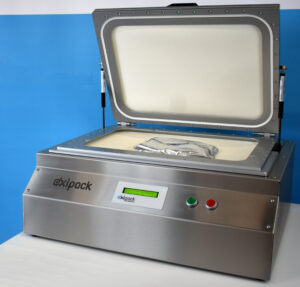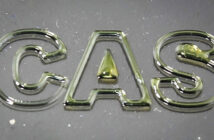
Oxipack uses a unique, vacuum system which allows the sampled product to be returned to the line after passing the test
Growing awareness around the importance of a healthy lifestyle is driving demand for ready-to-eat dairy products and its good news for the New Zealand cheese industry. Consumers are consciously seeking products with immunity boosting properties — such as dairy products — which are jam packed with protein and essential micronutrients.
With the increasing demand for these products comes increased production. Accurate leak detection of the packaging is a critical part of the production process which ensures the consumer receives a quality product which is safe to consume. Any micro leak can have a major impact on your product’s quality, shelf life and safety; and irregularities must be detected in time to avoid leaks.
Is your packaging leak free?
Leak detection specialist Oxipack understands the vital role of leak detection to ensure the quality of dairy snack foods and guarantee their shelf life. They’ve developed several solutions for the cheese industry that will quicky and accurately determine if packaging is leaking. All tests are 100% non-destructive and no added gas is required.
Oxipack Non-Destructive Leak Detection
The disruption caused by discovery of leaking packaging is every processor’s worst nightmare. Testing for leaks is generally conducted as a manual process, using a water bath, with random sample testing. By taking a number of samples at each test, statistical analysis is applied to determine if there is a line issue with the packaging process. These products cannot be returned to the line — even if they’ve passed the leak test — which is wasteful, and costs your business money.

Leak detection is vital to ensure the quality of dairy foods and guarantee their shelf life
How does it work?
The Oxipack range of non-destructive leak detection solutions change the game with a unique method. Through the use of two rubber membranes (or a deep chamber depending on the product’s packaging) a vacuum is created in the equipment’s test chamber which is then monitored over a time period. If a pressure increase is detected during this period, it is determined that a leak is present, and what size it is.
This method provides accurate detection of large, small and micro leaks; without damaging packaging.
Cheese processors are using the Oxipack Stationery Leak Tester (SLT) to detect leaks in all types of cheese packaging. Oxipack have solutions which are suitable for all sizes of packages, up to 25kg, and detecting leaks down to 25 µm. The equipment can even be calibrated to a known minimum hole size, should that be acceptable.
“We tried a number of different leak detection methods and each one had its own disadvantages,” says a cheese processor who recently added the Oxipack SLT to their high-quality grated cheese line.
“The SLT has a non-destructive test method, which doesn’t apply pressure to the seals of the packaging,”
“Now we don’t find our packaging breaking in the tester, and we don’t need to dry our products afterwards,”
“We use it at the beginning and end of each production run and samples are regularly tested. It’s fast, accurate and easy to use, and has reduced our testing time significantly,”
“The SLT is working so well, we plan on increasing our testing quantity and another SLT will be purchased soon.”
The processor is also trialing a new range of packaging materials and they plan on using the SLT to test its shelf life.
Are you interested in a unique, non-destructive leak detection solution for your cheese operation? Many companies around the world, already trust Oxipack for the most accurate leak detection.
Oxipack is sold exclusively by Heat and Control in New Zealand and Australia.
[email protected] or www.heatandcontrol.com
About Heat and Control
Established in 1950, Heat and Control is a privately-owned company with a global team that has built an extensive knowledge bank and developed a wealth of experience and expertise. Access to production and technical support from a network of engineers, food technicians, field service technicians, skilled tradespeople, and support teams provide food manufacturers with confidence to achieve production goals.
- Ten manufacturing facilities, 11 test centres, more than 30 offices globally
- Testing, design, engineering, manufacturing, installation commissioning, user training, spare parts, and provision of after sales service.




























































































